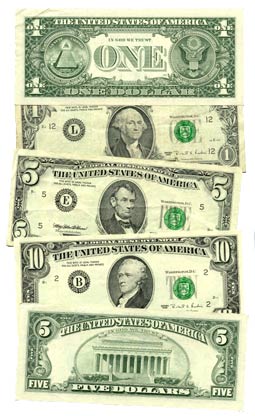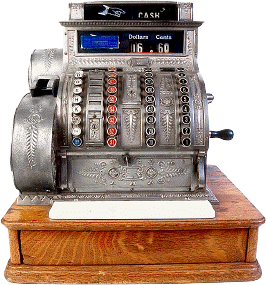Wag the Dog, Part III – that's all, folks…
The brightest moment in the Jan 3rd meeting with Senator Fraser, Representative Hunt and Representative Reykdal came when Chris Reykdal took the opportu nity to talk about the impasse that exists with generating revenue for the State.
nity to talk about the impasse that exists with generating revenue for the State.
Reykdal had campaigned for election to the legislature on tax fairness and he appears to be willing to make efforts on that question. Chris described the revenue proposal that he and freshman Senator David Frockt will be putting on the table.
Reykdal and Frockt’s proposal will eliminate the State business and occupation tax (B&0). This element of the proposal is expected to be attractive to the republicans. According to Reykdal, republicans really hate the B&O tax. I will take him at his word on that, but I haven’t been able to identify any tax that our current generation of republicans don’t hate. I guess there is some reason to believe that republicans prefer regressive taxes like sales tax that are paid disproportionately by middle and low income citizens.
So, the first part of this tax proposal that Reykdal referred to as The Hope Act is total elimination of the B&O tax. The second part of The Hope Act would reduce State sales tax from 6.5% to a flat 5%. Elimination of the B&O tax may or may not be regressive. I am a low income small business owner who pays the B&O tax each year. Last year I was pleasantly surprised to find that a tax credit for small business owners was in effect that reduced my annual payment by a significant amount. I have checked with other business owners whose scale of business is much larger than mine and have been told that they did not notice any significant reduction in 2010 B&O tax. So, the elimination of the B&O tax may be fairly regressive if that tax has been made somewhat progressive by an enduring tax credit scheme for low income small businesses, but I think the jury is out on that one. I think there is no question that the B&O tax raises a lot of revenue for the State, so elimination of that tax structure raises the question about how that lost revenue will be replaced.
 Sales tax revenue is clearly regressive, so a reduction of the sale tax rate (State part only, local add-ons will still be in effect) is clearly progressive. But like the elimination of B&O taxes, the sales tax reduction is a loss of revenue for the State and that translates into cuts in services. Reykdal and Frockt could probably pass these tax cut elements with 100% support from the Norquist Tax Patriots, but we would probably have to reduce education funding in the State to be K-4 proposition from the current K-12 model. Most folks who get through the fourth grade with the standard set of skills should be able to operate a deep-fryer or a touch screen cash register and will be able to stock shelves at a big box store, so this model works for a State economy based on 32 flavors of fast food and lowest prices, guaranteed, but there are many of us who think that there is a problem with the consumer utopian society, so there may be need to replace some of the lost revenue.
Sales tax revenue is clearly regressive, so a reduction of the sale tax rate (State part only, local add-ons will still be in effect) is clearly progressive. But like the elimination of B&O taxes, the sales tax reduction is a loss of revenue for the State and that translates into cuts in services. Reykdal and Frockt could probably pass these tax cut elements with 100% support from the Norquist Tax Patriots, but we would probably have to reduce education funding in the State to be K-4 proposition from the current K-12 model. Most folks who get through the fourth grade with the standard set of skills should be able to operate a deep-fryer or a touch screen cash register and will be able to stock shelves at a big box store, so this model works for a State economy based on 32 flavors of fast food and lowest prices, guaranteed, but there are many of us who think that there is a problem with the consumer utopian society, so there may be need to replace some of the lost revenue.
Revenue generation: this is where Reykdal/Frockt’s proposal gets interesting. This proposal seeks to increase State revenue by expanding the 5% State sales tax (we should assume that all local add-ons will follow suit) fromEconomic Opportunity Institute goods to goods and services.
So, the bill from your attorney, doctor, tax preparer, and more would start arriving with a sales tax bite. There is a large number of small business owners (I look in the mirror and see one) who will now need to start collecting and turning over sales tax if the Reykdal/Frockt proposal becomes law. Reykdal stated that the expansion of sales to everything, would not include sales tax on food. Ok. Sales tax on food is a really regressive source of revenue. It’s a good thing to keep the sales tax off of food. That’s progressive.

A small, but relevant detail about the sales tax on “everything.” It’s not quite everything – airplane sales are exempt and would continue to be exempt. We had a short discussion of the sales tax exemption that exists and will continue to exist if you are selling airplanes. Planes are a movable feast and buyers might insist on taking delivery of their planes in flight over the Cayman Islands to avoid paying a sales tax, so Reykdal says the only way to generate State tax revenue if you have a company that builds and sells airplanes in your State is through a State income tax. Hmm… There will continue to be some tax loopholes so large you can fly an airplane through them.
I am not sure how progressive the expansion of sales tax to services is because I experiencing a bit of resistance to a new tax requirement for my small business operation. Like a lot of small business owners, I am wondering if I am really going to be able to add this tax without losing some business or if I am going to need to absorb some portion of the sales tax as a business cost that would not be that different from the B&O tax. My initial calculation on the sales tax v. B&O tax suggests that my small business will be collecting and paying about three times as much money the Dept of Revenue with sales tax than I paid with B&O tax (and that’s before I factor in the surprise small business tax credit that unexpectedly left a few dollars in the till last year). I think it’s fair to say that businesses and business owners who have not been collecting sales tax are going to be lukewarm at best about the expansion of sales tax to services. I think we should look to the Economic Opportunity Institute for analysis of Reykdal/Frockt’s proposal. The historical analysis of expansion of sales tax to services is going to suggest that this tax is regressive, but less so than a simple tax rate jump (Gov Gregoire’s and others are ready to go that way to raise revenue).
Finally, the capper on the Reykdal/Frockt tax fairness proposal is implementation of a 1% State income tax. Reykdal stated that the Washington State Constitution limits State income tax to 1%. I haven’t fact-checked that assertion, but I am going to trust Chris on that one. The State has repeatedly rejected State income tax out of ignorance about the woefully regressive nature of our State revenue structure. We are the most regressive State in the Nation! We are number 1!
In addition to ignorance and a deep abiding faith and love for the most regressive tax structure in the nation, the opponents of State income tax have always been able to reach into their (deep) pockets and outspend the proponents of a progressive State income tax and I don’t think there is any reason to think that these leopards will change their spots in 2012, so I think the State income tax is going to be a sticking point even though it is a crucial part of the Reykdal/Frockt proposal.
Reykdal projects that this tax package will raise revenue and have instant tax fairness. I think he is correct. I am ready to get behind this bill. Bring the fight. Eyman has been wagging the State’s dog for long enough. It’s time for the legislature to take back responsibility for the budget and revenue generation.
Well done, Chris.
